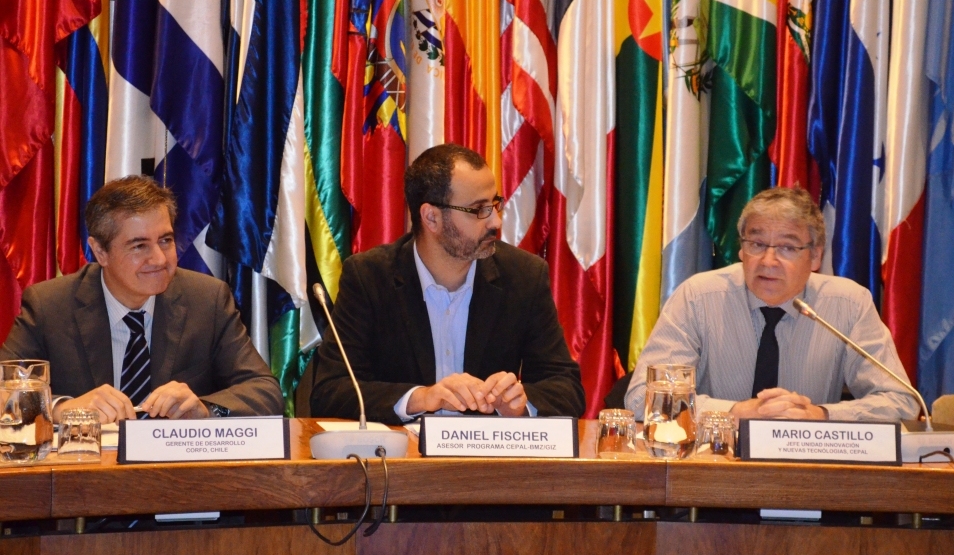Press Release
The impact and relevance of new technologies for productivity, development and sustainability of the countries of Latin America and the Caribbean were the focus of debate at the workshop on Industry 4.0 that was held today at the headquarters of ECLAC, in Santiago, Chile.
The event was inaugurated by Mario Castillo, head of the Unit of innovation and new technologies of ECLAC, Daniel Fischer, advisor of the ECLAC-BMZ/giz programme and Claudio Maggi, Director of competitive development of Chile’s economic development agency, CORFO.
In his opening remarks, Castillo said that the cycle of the third industrial revolution is now ending and the fourth is starting thanks to the convergence of the Internet of things, cloud computing, big data, robotics and new technology platforms. “The region did not catch-up during the third revolution, and thus the theme in discussion today is which policies must be created to take advantage of the new wave of development”, he said. “This workshop takes place on that context, to share experiences with a regional perspective and move towards a specific agenda that will allow making the most of this new revolution”.
Fischer stressed that “the fourth industrial revolution demands important economic, social and environmental changes. Therefore, the countries’ efforts to create Industry 4.0 policies must be fostered. There are different starting points in each country, thus the exchange of experiences and best practices created in these instances is timely and useful.”
Finally, Claudio Maggi focused in the case of Chile, a country in which “there is a challenge to reinvigorate economic growth, reversing the declining performance of productivity”. To do so, he explained, one of the crucial elements is innovation. “There is consensus in the fact that we need to move towards more sophistication, technology and innovation, towards an Industry 4.0 that allows improving and increasing the productivity of the country.”
During the workshop the participants discussed about the transition from traditional manufacturing to an advanced and about technological solutions for the Industry 4.0; also, some cases of success of advanced manufacturing were presented, as well as instruments of innovation for strategic sectors prioritized in Chile.
The event was attended by 80 people from the public and private sector –represented by ASIMET, among others–, the academia and the civil society. It was organized by ECLAC and the German cooperation – GIZ in the framework of the project Innovations for a sustainable structural change; it also had the support of CORFO, through the agreement with ECLAC to the design and implementing the strategic programs of smart specialization for competitiveness.



